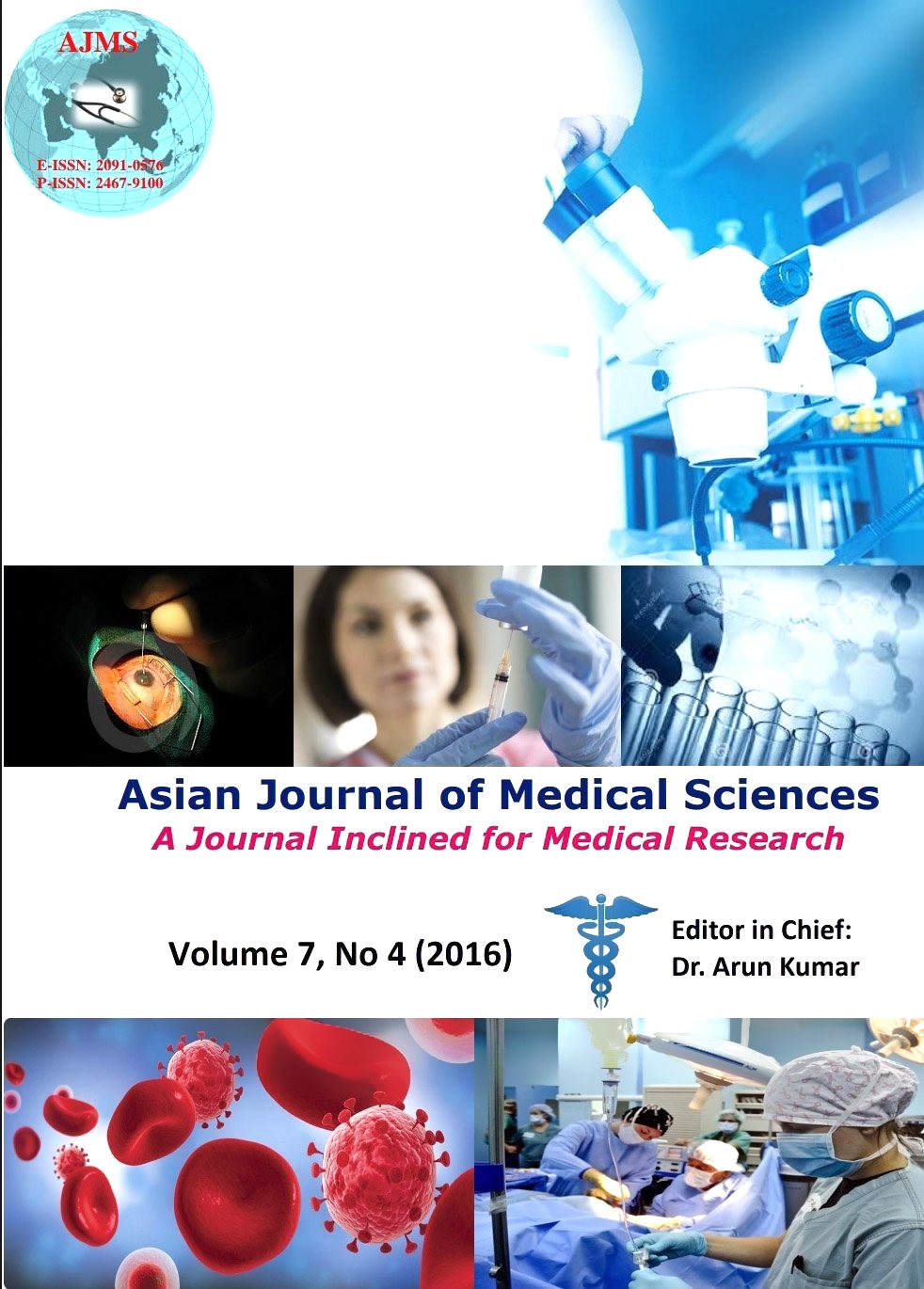A comparative study of health, nutritional status, and dietary pattern of primary school going and dropout slum children in Dhaka City, Bangladesh
Keywords:
Primary school age children, Slum, Educational status, Malnutrition, Dietary habitsAbstract
Background: Health affects not only current well being and future outcomes at individual and society level but also directly reflect the efficiency of health care system and the influence of surrounding environment. This is especially nutritional status of primary school age children which influence their health, dietary habit, cognition and educational achievement.
Aims and Objectives: The purpose of this study was to find and compare primary school going and dropout slum children (6-12 years) regarding their health, nutritional status and dietary pattern in four selected slums in Dhaka city, Bangladesh.
Materials and Methods: It was a descriptive cross-sectional study conducted among 100 children. Nutritional status was measured by collecting anthropometric data (height and weight) using standard techniques and analyzed according to WHO guidelines
Result: Based on WHO standard mean of Body Mass Index (BMI), the prevalence of underweight was higher among school dropout group (76%) than school going group (54%). A statistically significant difference between two groups were found regarding prevalence of stunting (P-value=0.03) and their daily dietary habits, such as, pulses (P-value=0.007), rice, fruits, milk, and meat (P-value=0.00) and fish (P-value=0.002). This study also found that parent’s education, family size, mother’s occupation, and economic status of family have an important impact on children’s education and their nutritional status.
Conclusion: Low education levels are linked to poor health and low quality dietary pattern. Lower socioeconomic condition and poor knowledge of parent’s about child education and nutritional diet makes this situation more worse.
Asian Journal of Medical Sciences Vol.7(4) 2016 59-63
Downloads
Downloads
Published
How to Cite
Issue
Section
License
Authors who publish with this journal agree to the following terms:
- The journal holds copyright and publishes the work under a Creative Commons CC-BY-NC license that permits use, distribution and reprduction in any medium, provided the original work is properly cited and is not used for commercial purposes. The journal should be recognised as the original publisher of this work.
- Authors are able to enter into separate, additional contractual arrangements for the non-exclusive distribution of the journal's published version of the work (e.g., post it to an institutional repository or publish it in a book), with an acknowledgement of its initial publication in this journal.
- Authors are permitted and encouraged to post their work online (e.g., in institutional repositories or on their website) prior to and during the submission process, as it can lead to productive exchanges, as well as earlier and greater citation of published work (See The Effect of Open Access).




